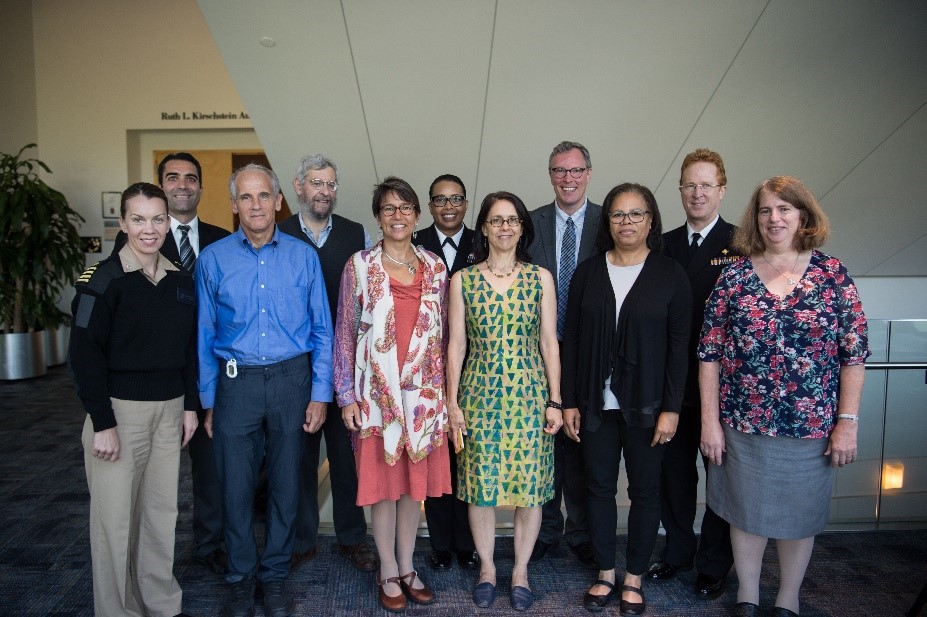NIH Conference: Strengthening the Impact of Community Health Workers on HIV Care and Viral Suppression in the U.S.

During the recent National Institutes of Health (NIH) conference titled Strengthening the Impact of Community Health Workers on HIV Care and Viral Suppression in the U.S., the National Institute of Nursing Research (NINR) launched an initiative funded by the Office of AIDS Research (OAR) to establish evidence for engaging community health workers in the fight to end the HIV epidemic in the US.
The two-day conference brought together researchers, health professionals, nurse scientists, community-based organizations, and community health workers who discussed ways to identify service and research gaps, share best practices, and explore potential collaborations to leverage knowledge and resources to address the needs of those impacted by HIV. Sessions included stories from the field, examples of the varied roles of community health workers, challenges in service delivery, and opportunities for collaboration with faith-based and community-based organizations. Sessions also explored the research climate directly, including presentations regarding metrics and implementation science.
This was a particularly timely meeting given the newly established national initiative and commitment to translate scientific advances in HIV prevention, diagnosis, treatment, and care to end the HIV epidemic in the U.S. within the next 10 years.
With the understanding that federal agencies and other organizations must work together to design specific and innovative strategies to achieve the goal of the Ending the HIV Epidemic: A Plan for America initiative, discussions during this conference emphasized the need and importance of working in partnership with community health workers on these efforts. Community health workers have diverse skill sets and the ability to understand and connect with people in their local communities to provide critical information, support, and resources to affected and at-risk populations.
There were presentations by health officials, including Rear Admiral Sylvia Trent-Adams, Principal Deputy Assistant Secretary for Health (PDASH), and several community-based healthcare workers including Durrell Fox, John Snow; Victwan Andrew McCorkle, Amida Care; Robert Contreras, Bienestar; Lawrence Crawford, BlaqOut; and Michael Benjamin, CALPEP. The presenters discussed the importance of shared life experiences in building relationships between health service providers and patients to reduced stigma and increase engagement and retention of individuals in care. The discussion emerged several times throughout the symposium, underscoring the critical need for this type of relationships to prevent new infections and help people with HIV achieve and maintain viral suppression.
Ongoing collaborations with community health workers will be essential to help reduce the number of new HIV infections by 75 percent within the next five years, and by at least 90 percent within 10 years, for an estimated 250,000 total HIV infections averted by 2030. Together with our federal and other partners, a surge in programs, training, support, and funding opportunities may be necessary to strengthen ongoing initiatives around community-based health care, the healthcare workforce, and HIV.
For details on specific topics and presentations, I encourage you to view the webcast links below for each day of the conference:
The agenda, speaker information and presentations can also be found here for your reference.
Maureen M. Goodenow, Ph.D.
Associate Director for AIDS Research and
Director, Office of AIDS Research
National Institutes of Health
This page last reviewed on December 10, 2024

